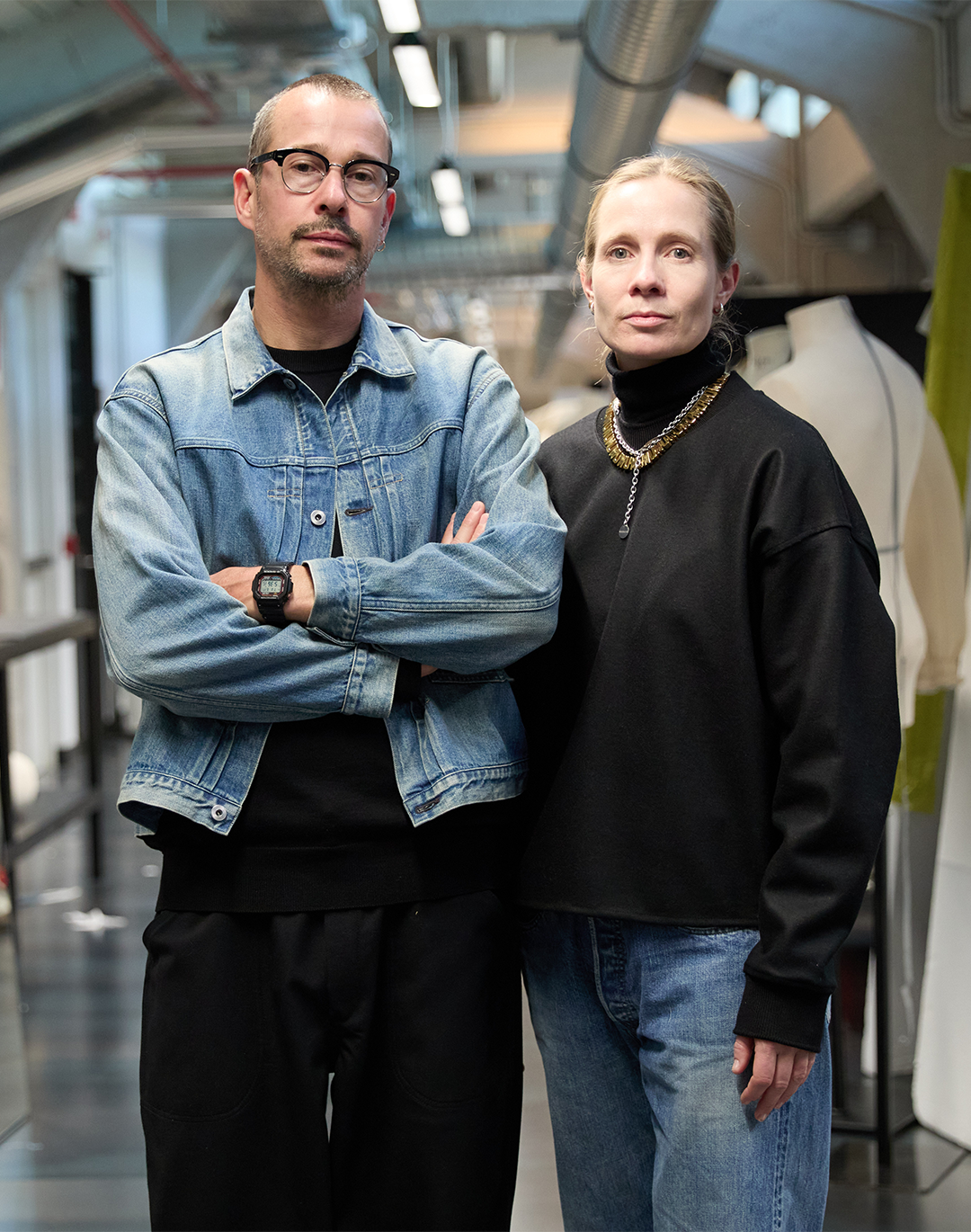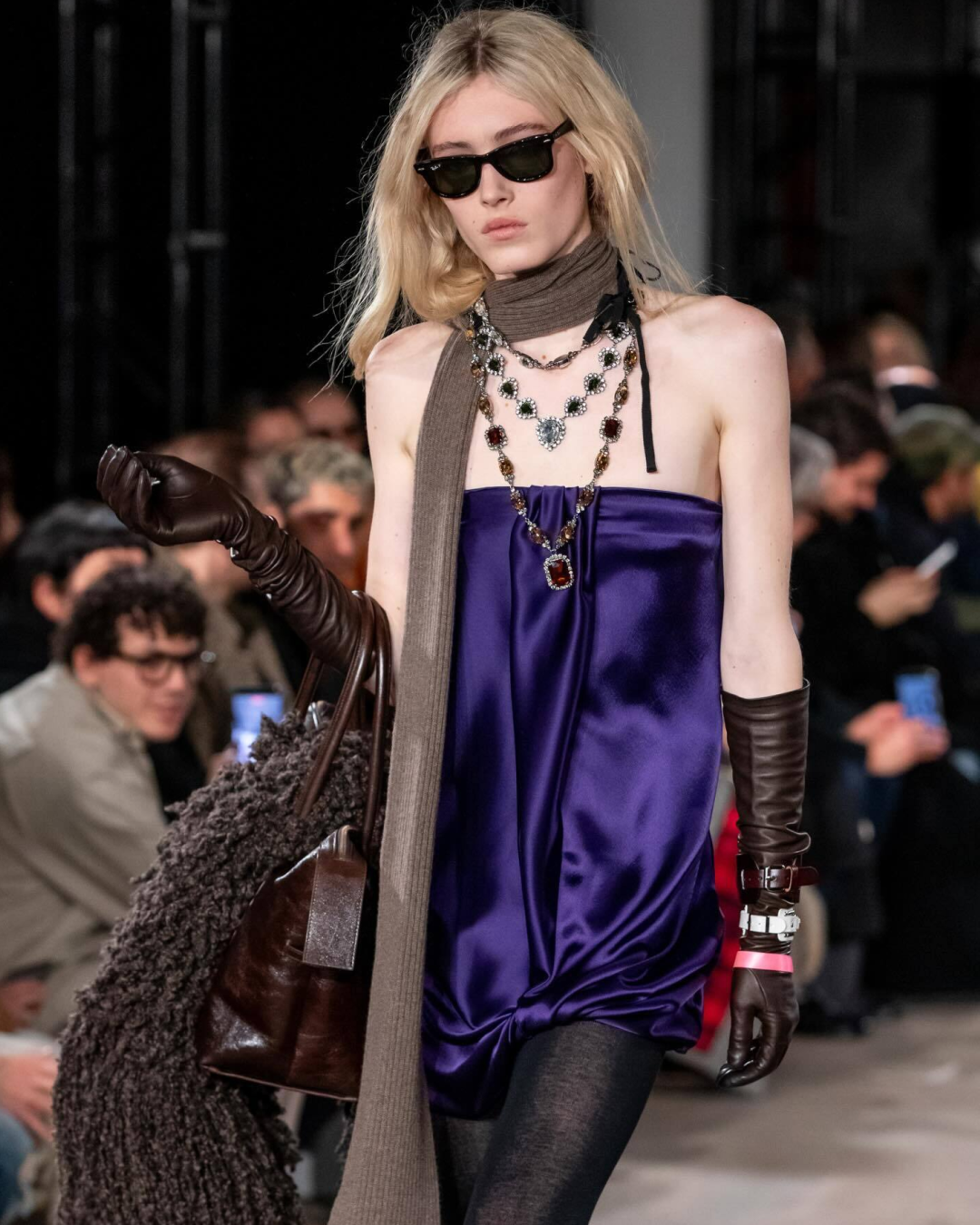
Are we witnessing the collapse of call-out culture? An incident that occurred on social media yesterday illuminates the limits and potential of the recent cultural movement
Yesterday afternoon, on the pages of @ideservecouture and @fashionfaguette there was a querelle that demonstrated the limits and criticality of modern call-out culture in social media. It all started when the Jean-Paul Gaultier brand account posted a photo of a modern version of the Trompe-l'œil Dress co-signed by Lotta Volkova. Immediately below the post a series of comments appeared accusing the historic fashion house of copying a contemporary Spanish designer named Sergio Castaño Peña. As often happens with the mob mentality of the Internet, the first comments attracted more and more in a kind of group frenzy during which owners of small accounts scattered around the world began accusing Gaultier of plagiarism. Of course, within hours, leading indie journalists and creators of fashion content (especially the two mentioned at the beginning of the piece) mocked the haters on social by pointing out that Gaultier was practically the inventor of the naked dress: specifically, the dress in question was inspired by an archival piece designed by Gaultier in 1984, which was replicated in polyamide instead of its original jacquard fabrication. Throughout the 1990s, then, Gaultier signed variations on the theme such as the SS93 show look famously worn by Ève Salvail and the Goddess Dress from the SS99 collection now housed at the Met in New York. Other iterations of the dress occurred in the SS95 collection, SS96, SS98 and FW04 just to name a few.
Without wishing to go through the entire history of Gaultier's naked dress, yesterday's episode demonstrated the clear limits of call-out culture when a solid cultural base is not there to support its pedantic moralism. It is no coincidence that, today, all comments and accusations were promptly deleted by at least a hundred users blatantly embarrassed by their rush to report plagiarism at every given occasion. But this is only a peripheral and superficial symptom showing how the cultural movement is beginning to self-cannibalize and collapse in on itself: already, for example, the account that invented the idea of call-outs, Diet Prada, has gradually sidelined its role as a "denunciation page" of plagiarism and fashion industry misbehavior to become a kind of news page talking about politics, Britney Spears' pregnancy, and the red carpet looks of Cannes. The call-out today has been replaced by a new kind of content creation, even critical of fashion, produced by independent journalists/creators who speak to the social audience generally focusing more on fashion itself than on political activism: independent creators and journalists such as Hanan Besovic, Odunayo Ojo, Kim Russell of @thekimbino or archival pages such as @insidethemood have begun to emphasize, each in their own way, a sense of cultural relevance that includes morality but is not reduced to it.
It is clear that, living in 2022, the elements of call-out culture are not going to disappear from public discourse anytime soon - abetted by social media, the opportunism of the increasingly clickbait-dependent press, and the easy indignation of the social media crowd, always ready to pick up flashlights and pitchforks to rally under the balcony of the villain of the day. On the contrary, the positive sides of call-out culture should remain: nominally the opportunity that independent and public voices have to expose bad behavior, the increased scrutiny to which prominent figures in the fashion industry are subjected, and the new standards of integrity that are demanded of industry executives. No less, after more than four years of call-out culture (we summarily point to 2018 as the movement's entry into the cultural mainstream and 2020 as its absolute climax) the same audiences have begun to become increasingly impatient with what Jonathan Chait, in a recent New York Magazine article, called «witch hunt logic» as figures cancelled in the past begin to make their return. The answer to everything is always one: culture as a support for the investigations of the present and as a teacher of an intellectual approach and tone of debate that is more nuanced and thoughtful.




















































